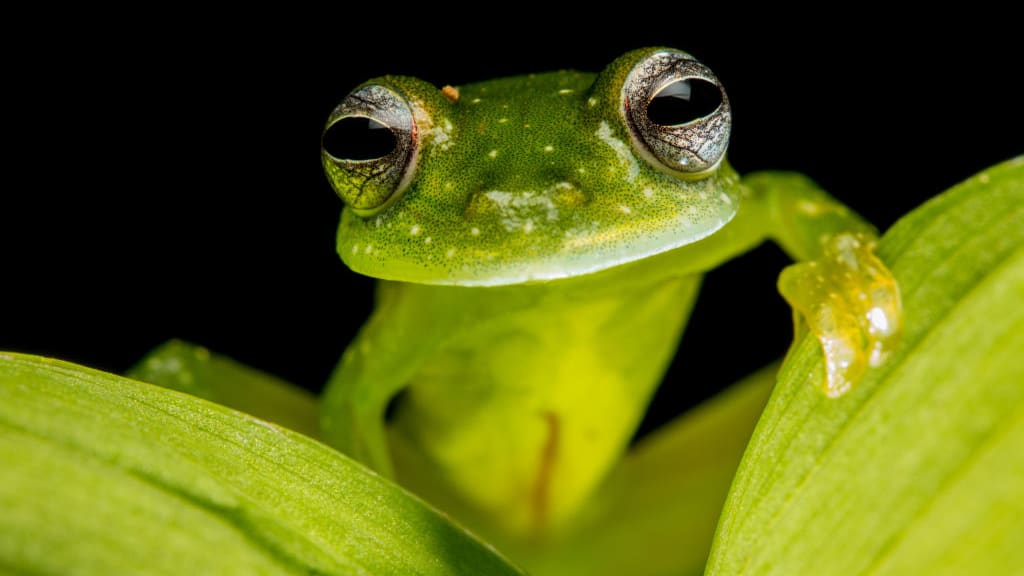2 newly-identified species of glass frogs named in Ecuador


A free daily email with the biggest news stories of the day – and the best features from TheWeek.com
You are now subscribed
Your newsletter sign-up was successful
Two newly identified species of glass frogs have been identified in Ecuador, and while they look exactly alike, scientists discovered there is much more than meets the eye.
The see-through frogs were found living 13 miles apart, just outside Quito. One of the species, named Hyalinobatrachium mashpi, lives in the Mashpi and Tayra Reserves, while the second, the Hyalinobatrachium nouns, resides in a valley in the Toisan Range. "At first, when we started to collect them, we thought they were the same species," Juan Manuel Guayasamin, evolutionary biologist at Universidad San Francisco de Quito, told National Geographic.
There are 156 known species of glass frogs in Central America, the Caribbean, and South America, and Guayasamin and other researchers have sequenced genes for most of them. After taking DNA samples of the two glass frogs found near Quito, researchers learned that they "diverge genetically by nearly 5 percent, a large gap for such otherwise similar amphibians," National Geographic writes.
The Week
Escape your echo chamber. Get the facts behind the news, plus analysis from multiple perspectives.

Sign up for The Week's Free Newsletters
From our morning news briefing to a weekly Good News Newsletter, get the best of The Week delivered directly to your inbox.
From our morning news briefing to a weekly Good News Newsletter, get the best of The Week delivered directly to your inbox.
Despite being similar sizes, having transparent bellies that reveal their internal organs, and living so close to one another, Hyalinobatrachium mashpi and Hyalinobatrachium nouns are still divided by a valley, and "when you have populations separated by a geographic barrier, you start having an accumulation of mutations in each group, and in time, they become genetically different," Guayasamin said.
Guayasamin is the lead author of a paper about the new species, published last week in the journal PeerJ. They are an example of cryptic diversity, meaning the characteristics that make them different are not apparent just by looking at the frogs. The tropical Andes is home to more than 1,000 amphibian species, and it's believed there are many more types of glass frogs just waiting to be discovered.
A free daily email with the biggest news stories of the day – and the best features from TheWeek.com
Catherine Garcia has worked as a senior writer at The Week since 2014. Her writing and reporting have appeared in Entertainment Weekly, The New York Times, Wirecutter, NBC News and "The Book of Jezebel," among others. She's a graduate of the University of Redlands and the Columbia University Graduate School of Journalism.
